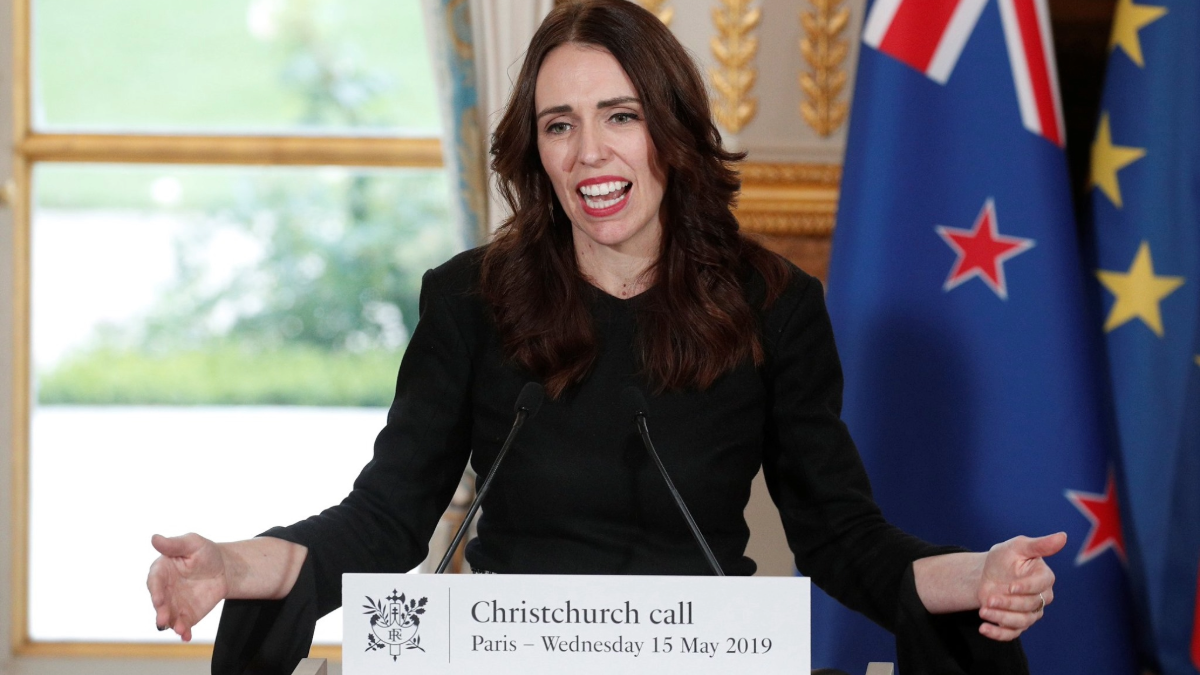The Christchurch Call to Action Foundation Should Be Governed By Its Multistakeholder Community
Farzaneh Badiei / Jul 24, 2024
Former New Zealand Prime Minister Jacinda Ardern at a 2019 meeting of the Christchurch Call to Action. Source
The Christchurch Call to Action is an initiative led by New Zealand and France in the aftermath of terrorist attacks that took place in two Christchurch mosques on March 15, 2019, killing 51 adults and children from the Muslim community. Under the common banner of the Call, the governments negotiated commitments with major tech corporations to address terrorism and violent extremism, and the text of the commitments was issued as a result of bilateral negotiations. Civil society groups were consulted after the text was finalized, but no changes to the text were permitted. So civil society did its best to come up with a position statement before the first Christchurch Call meeting in May 2019, which was held in Paris.
To rectify the lack of consultation with civil society groups and to create a multistakeholder forum, New Zealand and France convened a civil society advisory network, the Christchurch Call Advisory Network (CCAN), that included diverse members from violence prevention groups, open and secure Internet advocates, human and digital rights organizations, and representatives of affected communities. Since 2019, the Christchurch Call has come a long way, taking on a more multistakeholder approach. It has tried to arrange for civil society groups to participate in the forum alongside companies and the government, and has facilitated civil society engagement.
For the past few years the Christchurch Call was run by a secretariat managed by the governments of New Zealand and France. The Secretariat has now moved to a private foundation that convenes a global “Call Community'' composed of “56 governments, 19 online service providers, 12 partner organizations, and more than 50 civil society organizations.”
The transition of the secretariat from a government-hosted initiative to a not-for-profit focused on multistakeholder coordination is in some ways similar to the way the Internet Corporation for Assigned Names and Numbers is organized. ICANN is a not-for-profit organization based in California that has a very specific mandate: to coordinate the global policy around the allocation of domain names in a bottom-up and multistakeholder manner. The not-for-profit was established as a result of a white paper issued by the US government and consultations with multiple stakeholders. ICANN still had a contract with the US government up until October 2016, but it was understood that the US did not interfere with the multistakeholder community’s decisions. ICANN stakeholders and advisory committees have specific roles and responsibilities, which are mentioned clearly in the bylaws of ICANN. They also elect board members through a nominating committee and appointment by different stakeholders.
Despite the “no interference” rule, US oversight remained a cause of concern for other countries and stakeholders. To relinquish the stewardship of ICANN and transfer it to the multistakeholder community and stop the contract between ICANN and the US government, the community got together, reaffirmed their roles and responsibilities (clarified in the bylaws), and came up with a few accountability mechanisms.
What can we learn from ICANN and apply to the Call?
ICANN and the Call are very different organizations, but many issues are very similar. We can learn a few lessons from ICANN, which has practiced a multistakeholder approach since 1999.
1. Transferring the Call’s stewardship to the multistakeholder community
The transition of Christchurch Call should not be viewed as merely the transition of Christchurch Call to a foundation; rather, it should be treated as the transition of Call to the multistakeholder community.
2. A defined role for the multistakeholder community
The multistakeholder community must continue to have a say in shaping the Call’s roles and responsibilities. For Christchurch Call commitments to be upheld by the supporters of the Call, especially by governments and tech corporations, the rules of engagement should be clear, and the roles and responsibilities of the actors should be specified.
3. Civil society and its role
Civil society representatives should also have a clear role specified in the governing rules of the foundation. If we want to distinguish a bottom-up, multistakeholder initiative from other consortia and public-private partnerships, we have to consider a strong role for civil society and empower groups to engage on equal footing with other stakeholders. That can only be possible by having a clear understanding of the roles and a formal commitment to engaging with the Christchurch Call Advisory Network (the current civil society arm of the Christchurch Call). It has been very clear at ICANN that without a clear role for civil society, time and time again, civil society voices can be muffled. For a long time, as members of the Noncommercial Stakeholder Group (the civil society arm of ICANN), we have relied on clearly defined roles and the opportunities that arise to influence policies and provide expertise and advice. Without a clear role and having equal opportunities to be at the table providing expertise and advice, it would have been easy for civil society’s voice to be set aside.
4. Electing board members
The Call’s multistakeholder community should be able to at least have a say in the election and appointment of the Foundation’s board members, just as it works in ICANN. Board members in not-for-profit organizations are the main decision-makers and could potentially have a pivotal role in deciding the future of the Call. While the community can also be given decision-making roles, boards play a major role in not-for-profit organizations and corporations. There should be very clear lines of communication with the current board members, and in the future, the community should be able to nominate and elect Board members.
---
All in all, we should recognize that the Christchurch Call to Action transition should not be regarded merely as moving from a “government led initiative” to a “private initiative.” The transition should be from a government-led multistakeholder initiative to a multistakeholder community. Creating multistakeholder governance initiatives in this day and age, when many governments are asserting their sovereignty over the Internet, is a laudable effort. It does not hurt to learn from previous initiatives as well and see what went well and what went wrong. The number one priority for the Christchurch Call Foundation and the multistakeholder community should be to clarify their roles and responsibilities. The goal, just as it was in 2019, is both urgent and worthwhile.
Authors
